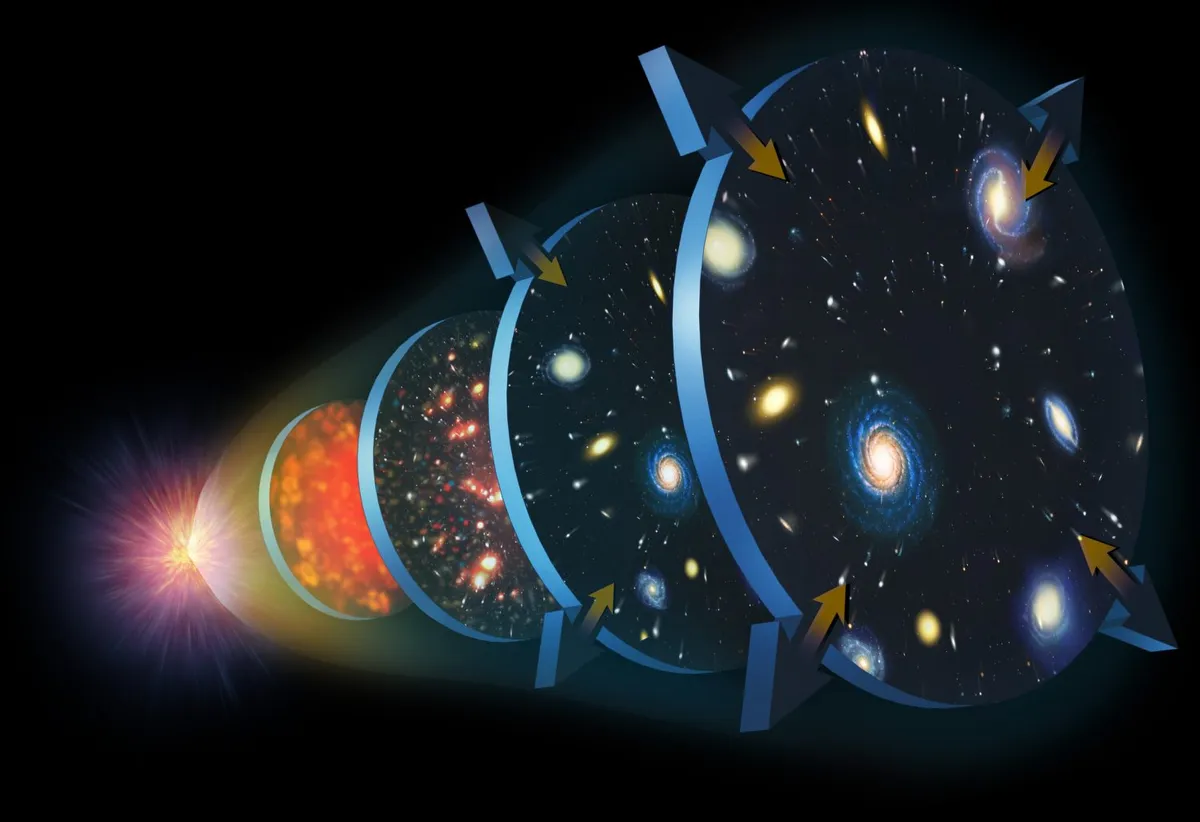In many popular astronomy books, you may read that our Universe was as small as a grapefruit right after the Big Bang.
Or you may be told that the Universe began as an infinitesimal, dimensionless point. In fact, the truth is much weirder.
Yes, right after the Universe came into existence, some 13.8 billion years ago, space was incredibly more ‘compact’ than it is now, and both the temperature and the matter density of the Universe were incredibly high.

But if our present Universe is infinitely large, it must always have been infinitely large, even at the primordial epoch when all spatial distances were, say, one billion times as small as they are now.
After all, infinity divided by one billion is still infinity.
What you can say is that our observable Universe – the 45-million-lightyear radius sphere that we can study at present – was once compressed into an incredibly tiny volume.
But even back then, an infinite Universe just would’ve gone on forever beyond the ‘edge’ of this imaginary grapefruit.
Read more in Govert's article Does the Universe have an edge?

